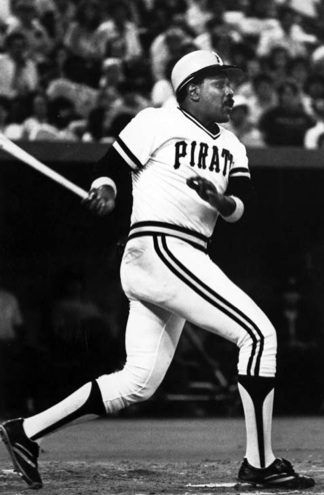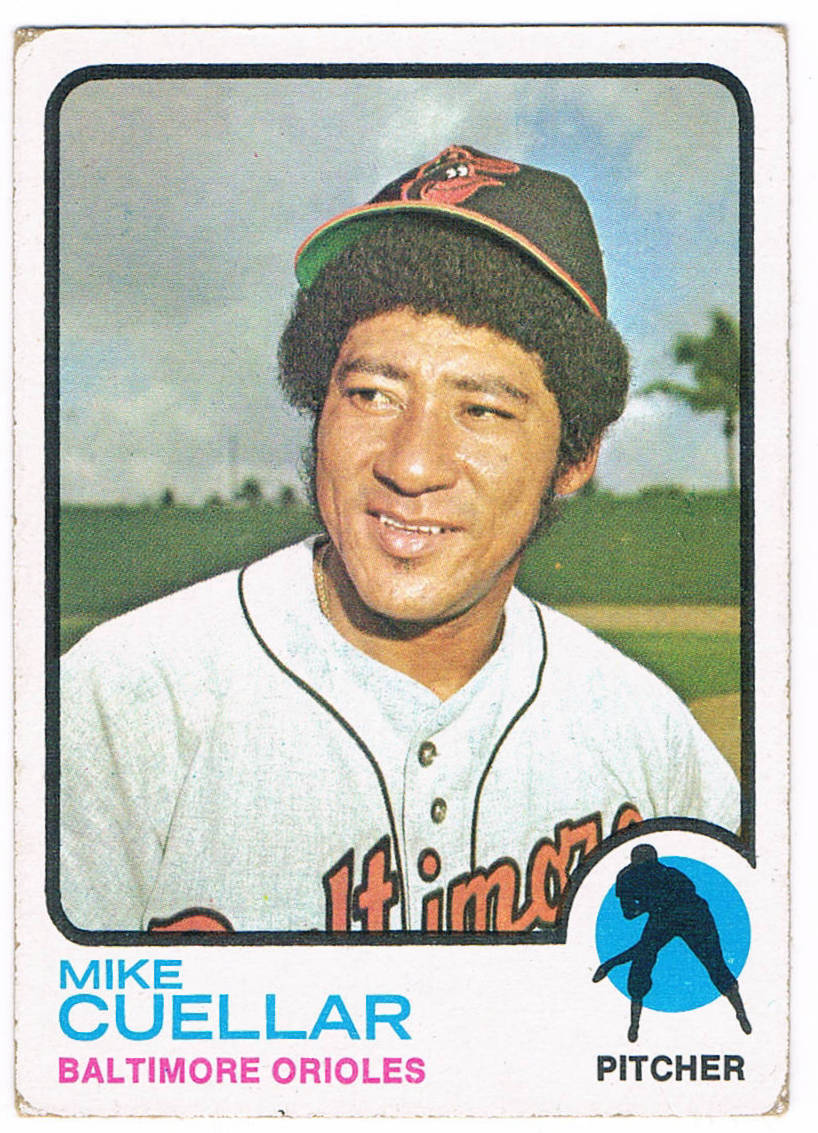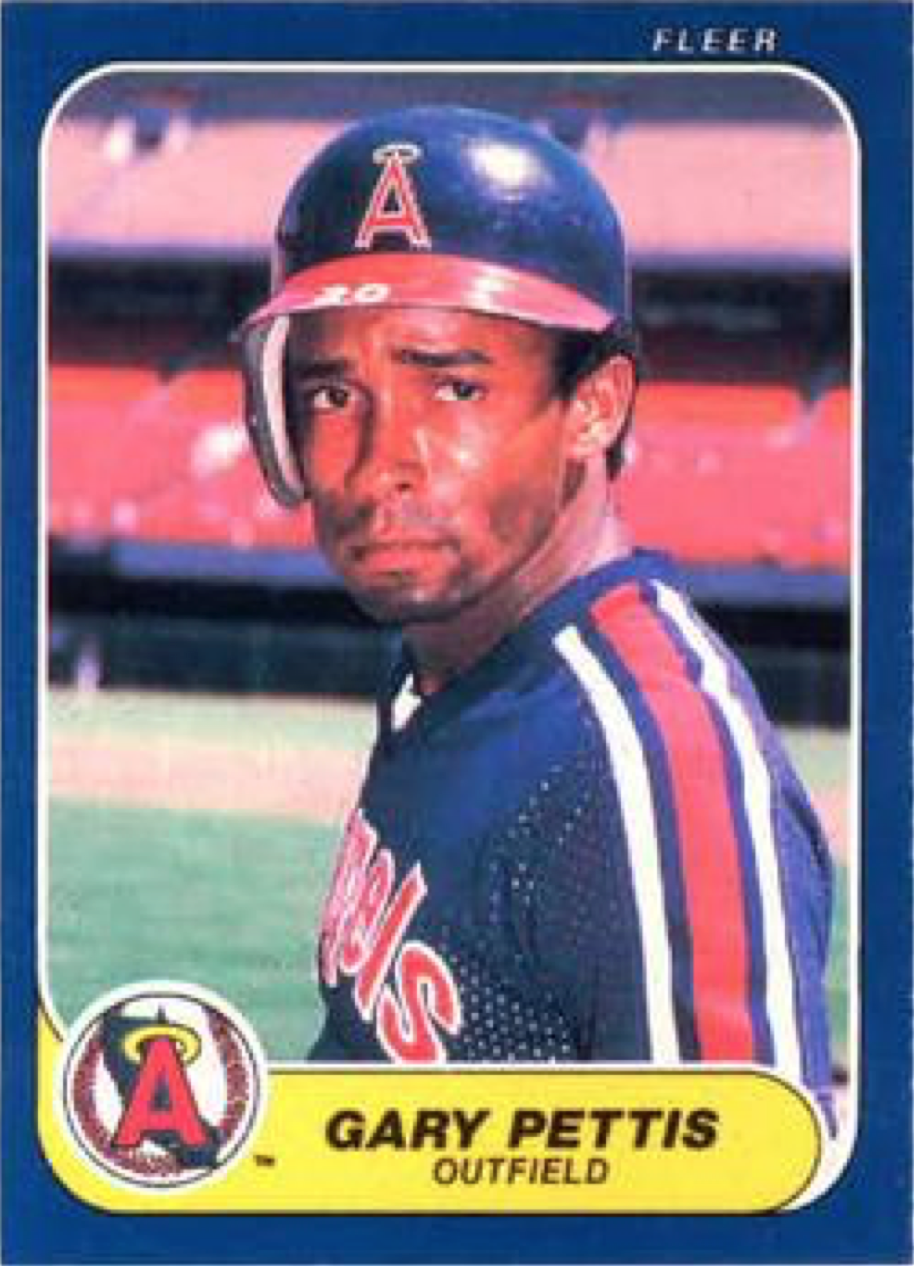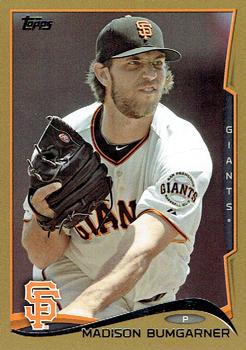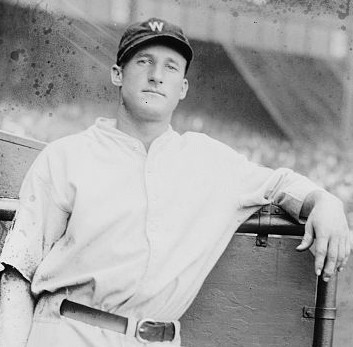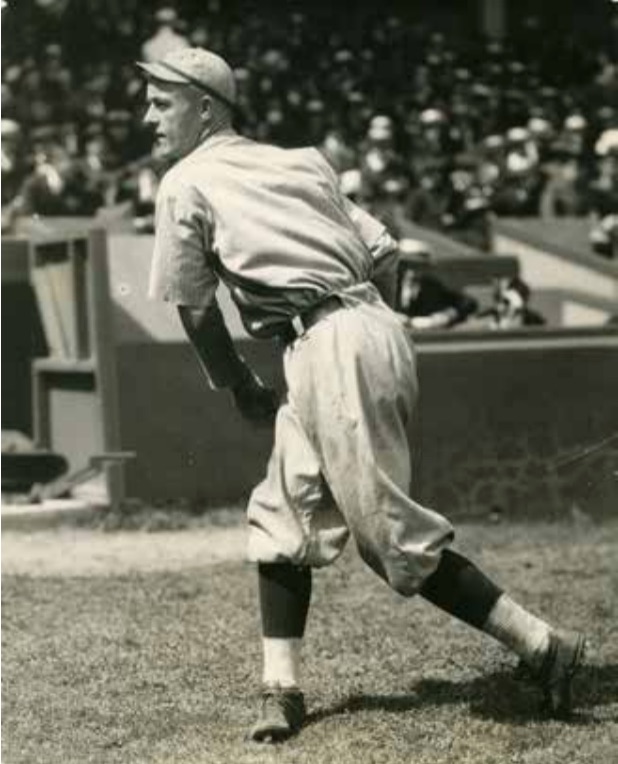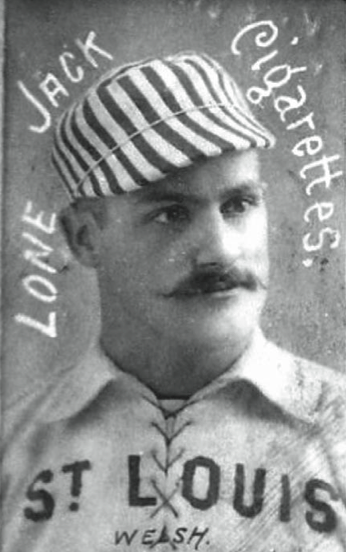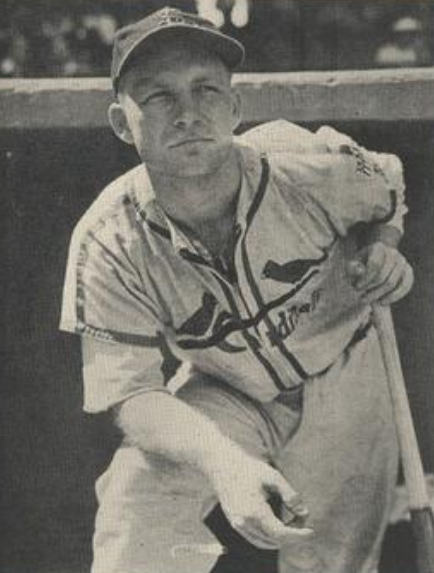October 2, 1940: Jittery Reds lose World Series opener to Bobo Newsom and the Tigers
 Baseball insiders and fans were asking a lot of questions as the World Series opener loomed. Would Ernie Lombardi and Lonny Frey be ready to play? Lombardi had suffered a severely sprained ankle chasing a pop foul at Ebbets Field on September 15. Frey bruised and broke a big toe on September 28 when a heavy metal lid from an ice cooler fell and landed on his foot. The Reds even had a third injury worry, as left fielder Jimmy Ripple was struck on the wrist by a pitched ball in the last game of the season and was also doubtful.
Baseball insiders and fans were asking a lot of questions as the World Series opener loomed. Would Ernie Lombardi and Lonny Frey be ready to play? Lombardi had suffered a severely sprained ankle chasing a pop foul at Ebbets Field on September 15. Frey bruised and broke a big toe on September 28 when a heavy metal lid from an ice cooler fell and landed on his foot. The Reds even had a third injury worry, as left fielder Jimmy Ripple was struck on the wrist by a pitched ball in the last game of the season and was also doubtful.
Asked about the availability of his injured regulars, manager Bill McKechnie commented only that neither Lombardi nor Frey would start the first game. He indicated that it would be a game-to-game decision. As it turned out, neither player played a significant role in the Series.1
The loss of Lombardi was especially troubling because backup catcher Willard Hershberger had committed suicide in August, leaving rookie Bill Baker as the only other catcher on the roster besides coach Jimmie Wilson. McKechnie, not wanting to trust the Series play-calling to a rookie, turned to Wilson, despite the fact that the 40-year-old veteran had caught only 24 games in the last three years, 22 with the Phillies in 1937, one with the Phillies in ’38, and one with the Reds in 1939. Ironically, in the words of Bill Werber, “He was the star of the whole shebang.”2
If the injury problems weren’t enough, the Reds were being challenged to break a nine-game losing streak for the National League in World Series play. The Yankees had won the last game of the 1937 Series against the Giants, and had swept both the Cubs in ’38 and the Reds in ’39.
The Detroit Tigers had bested the Cleveland Indians by one game and the Yankees by two to win the American League pennant. Many baseball experts considered the Tigers to be an easier mark than the Yankees of previous years, which only added to the pressure on the Reds to redeem the senior circuit.
A less serious question, but one that baseball fans enjoyed bantering about, was which pitching ace, Paul Derringer or Bucky Walters, McKechnie would pick to pitch the opener. Since the Reds had clinched the pennant on September 17, the wise skipper of the Reds had ample opportunity to position his Series pitching rotation in whatever manner he chose.
Although no Reds player was asked to address this issue, later interviews with the Reds players of the time offered different insights into this question. Bill Werber, the Reds third baseman, claimed that McKechnie had no preference one way or the other, that he would pitch whoever’s turn came up.3 Of course, that position would only hold true during the regular season. Eddie Joost, who filled in for Frey at second base throughout the Series, claimed that McKechnie preferred Derringer in the clutch games.4 Other Reds had the attitude, “It makes no difference; they were the two best pitchers in the league.”5
For reasons McKechnie never stated publicly, he chose Derringer to start the opener. The Tigers countered with their ace, Bobo Newsom, who had won 21 games against only five loses during the regular season. Even though both Derringer and McKechnie claimed after the game that Derringer had his good stuff, the Tigers had little trouble with him in the Series opener.
Reds fans, who had packed Crosley Field with a standing-room crowd of 31,793, were thrilled when Derringer set the Tigers down in order in the first inning. However, the second inning raised the age-old baseball question: Was the Reds clinching the pennant early a good omen for postseason play? Did the opportunity to rest regulars better prepare them for postseason play, or did it make them lose their edge? Unlike the Reds, the Tigers had no such question, since they only clinched the pennant on the last day of the regular season.
Leading off the top of the second, Tigers cleanup hitter Hank Greenberg singled to left. The Tigers slugger was halfway to second before he decided to settle for a single. When Billy Myers took the relay throw from Jimmy Ripple with his back to the infield, Greenberg was running back to first. However, no teammate alerted Myers to a possible play on Greenberg, so Hank retreated safely back to first.
The next hitter, Rudy York, singled to right-center. Greenberg rounded second and headed for third before the third-base coach held up the stop sign. Once again Myers received the relay from center fielder Mike McCormick with his back to the infield and did not throw to Joost covering second. Had he done so, Greenberg would have been out trying to return to second.
The next hitter, Bruce Campbell, sacrificed down the third-base line. The usually reliable Bill Werber fielded the ball cleanly but made a wide throw to Joost, covering first, for an error that loaded the bases with nobody out.
Then the floodgates opened. Pinky Higgins, the Tigers third baseman, lined a single to center, scoring the first two runs of the Series. Derringer, obviously upset, walked catcher Billy Sullivan, the eighth hitter, to once again load the bases, bringing up pitcher Bobo Newsom. Newsom grounded to first baseman Frank McCormick, who threw home, forcing Campbell for the first out, with the bases still loaded. Leadoff batter Dick Bartell then singled to center, scoring Higgins and Sullivan. Center fielder Barney McCosky added another run by driving in Newsom with a single to left, making the score 5-0 and sending Derringer to the showers.
McKechnie brought in Whitey Moore, who managed to “put out the fire” by retiring the Tigers without further damage.
It certainly wasn’t Paul Derringer’s day, but even more surprising was the sloppy Reds defense in the second inning. Twice Greenberg’s baserunning blunders could have been turned into an out if the Reds players had been more alert and communicating the way they had the entire season. The Reds had won 41 games by one run during the regular season. It was obvious to all and regularly reported that they were running away with the pennant because of an excellent pitching staff and a solid defense. The fact that both deserted them in the Series opener led many to wonder why the National Leaguers were so jittery.
In the end, it would be the Reds’ pitching and defense that would carry them to the Series win, but Game One gave no clue as to why the Reds had just won 100 games during the regular season.
The Reds managed a solo run in the fourth when Goodman doubled and scored on a single by Jimmy Ripple. The Reds added another run in the eighth when Werber doubled to center and scored the team’s final tally on a single by Goodman.
The Tigers picked up two insurance runs in the fifth when York tripled and Bruce Campbell belted the first homer of the Series. Seven runs were more than enough for Newsom, who coasted home with a 7-2 victory.
After the game McKechnie, in his usual mild manner, simply said, “Bucky Walters will pitch tomorrow. Wilson will catch and Joost will play second.”6 His calmness was his way of saying, tomorrow is another day.
Tigers manager Del Baker took a similarly mild-mannered approach. “Bobo didn’t really have his best stuff, but his control was good. Derringer’s stuff looked good, but we hit him. I’ll pitch Schoolboy Rowe tomorrow.”7 Being a veteran baseball man, Baker knew better than to kick the opposition when they’re down.
At least two Tigers hadn’t learned that lesson yet. Bruce Campbell, the Tigers excellent right fielder, summed up the Crosley debacle by saying, “Gosh, I have to feel bad about the licking we gave them. They can’t be that bad, can they?”8
Bobo Newsom, never one to be at a loss for words, held court in his usual brash, confident self: “If we keep hitting, we may win it in four straight. I don’t think we’ll be back here after we get through with them in Detroit.”9
Many of the Cincinnati sportswriters worried openly about the Reds chances. Fans holding tickets for Game Six were wondering how they would receive their refund. But with Bucky Walters set to pitch the following day, all was not lost just yet.
This article was published in “Cincinnati’s Crosley Field: A Gem in the Queen City” (SABR, 2018), edited by Gregory H. Wolf. To read more articles from this book at the SABR Games Project, click here.
Notes
1 Lombardi caught only one game, the 7-4 Game Three loss at Briggs Stadium. Frey’s appearances in the Series were limited to pinch-hitting in the Games Three and Five until he was inserted into Game Seven as a pinch-runner for pinch-hitter Ernie Lombardi in the seventh inning. Lombardi had pinch-hit for Eddie Joost, and was intentionally walked. Frey replaced Joost at second base in the top of the eighth. Frey made one very significant play: He threw out Earl Averill for the final out of the Series on what Frey described as a routine groundball. Interview with Lonny Frey, August 1, 1989, Seattle, Washington.
2 Author’s interview with Bill Werber, March 28, 1989, Naples, Florida.
3 Werber interview.
4 Author’s interview with Eddie Joost, April 29, 1989, San Jose, California.
5 Author’s interviews with Lonny Frey, Junior Thompson, Harry Craft, and Johnny Vander Meer. 1989-1990.
6 Brian Mulligan, The 1940 Cincinnati Reds (Jefferson, North Carolina: McFarland and Company, 1963), 146.
7 Mulligan, 145.
8 Leo Bradley, Underrated Reds, the Story of the 1939-40 Cincinnati Reds (Cincinnati: Fried Publishing, 2009), 51.
9 Mulligan, 145.
Additional Stats
Detroit Tigers 7
Cininnati Reds 2
Game 1, WS
Crosley Field
Cincinnati, OH
Box Score + PBP:
Corrections? Additions?
If you can help us improve this game story, contact us.


